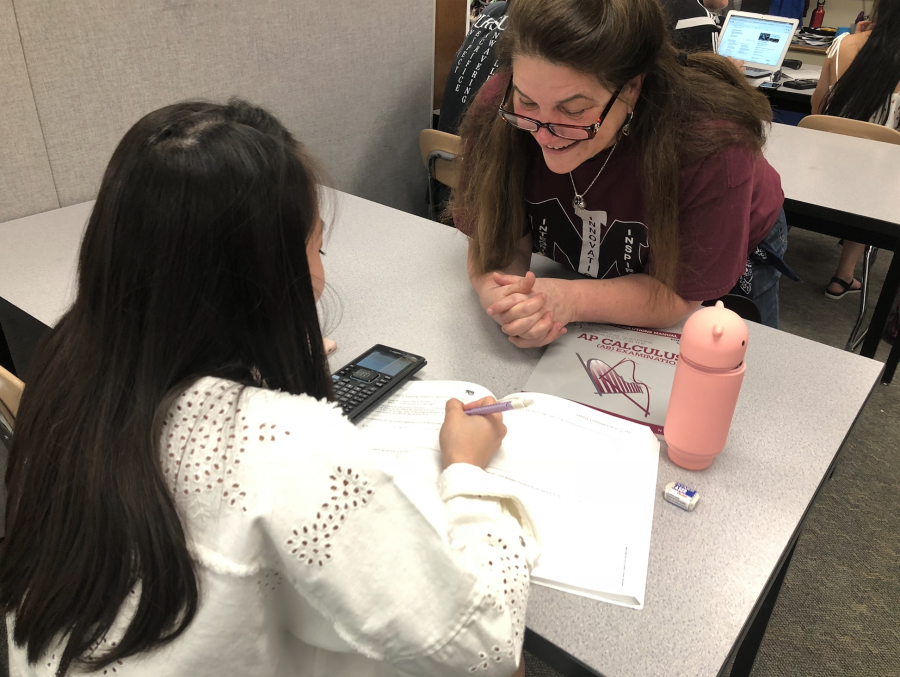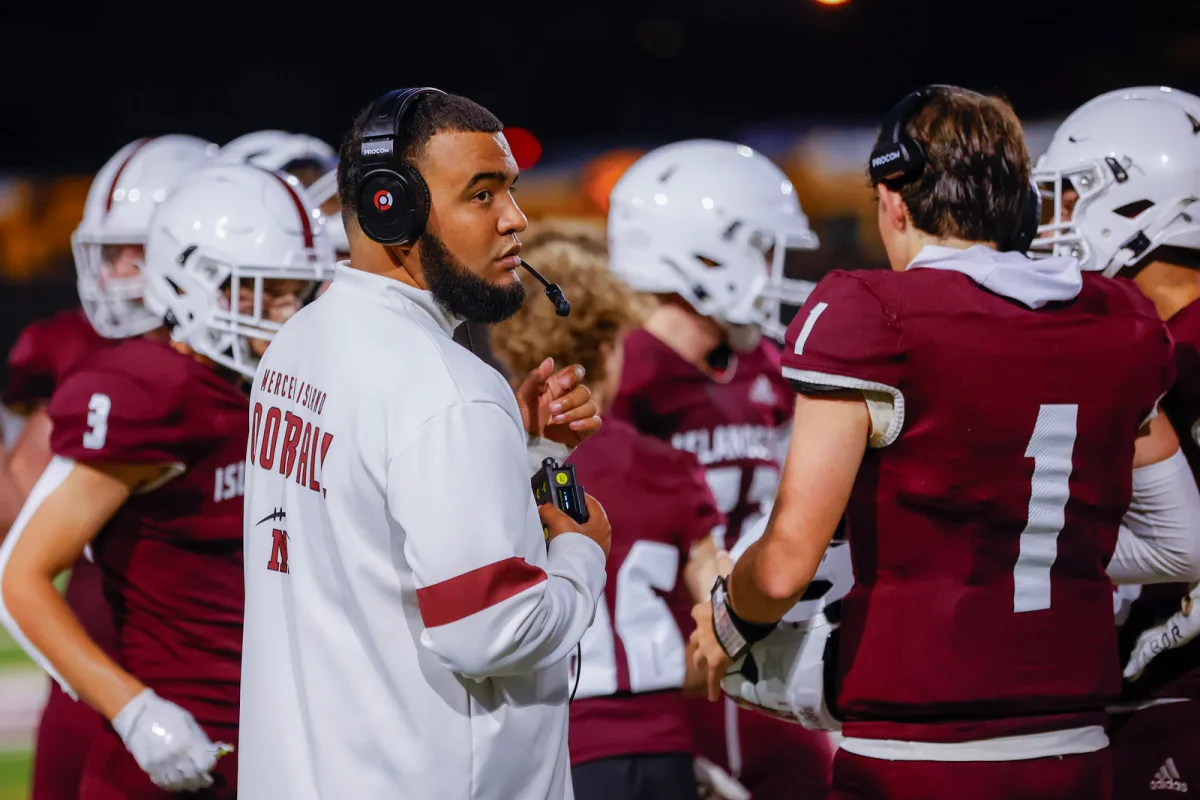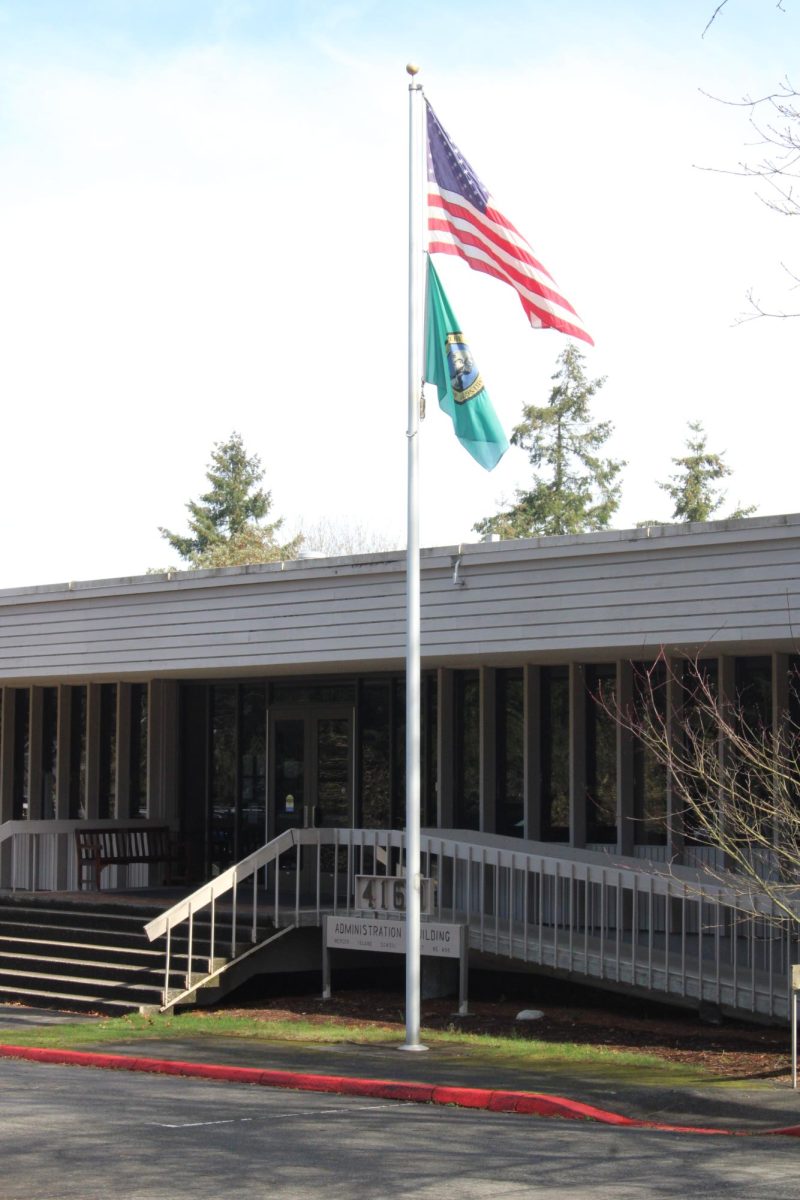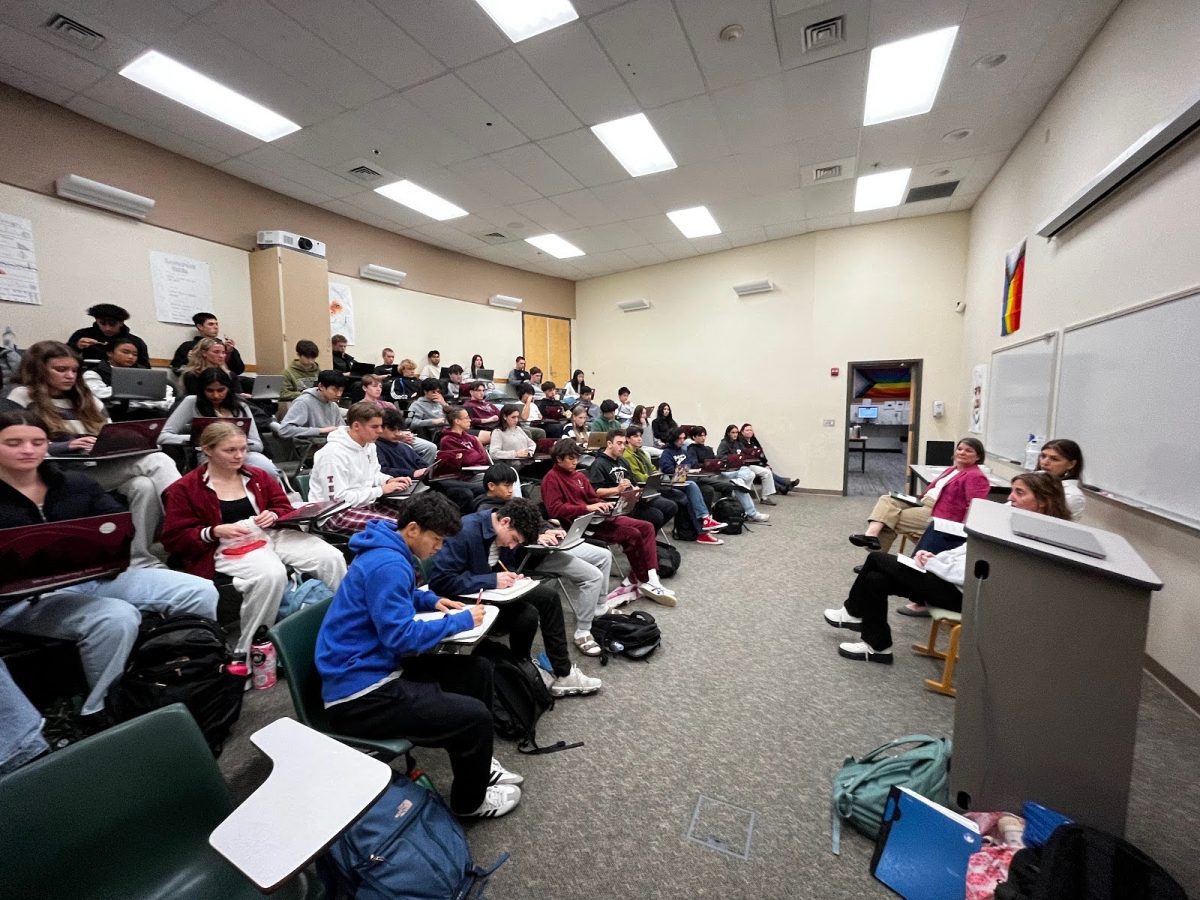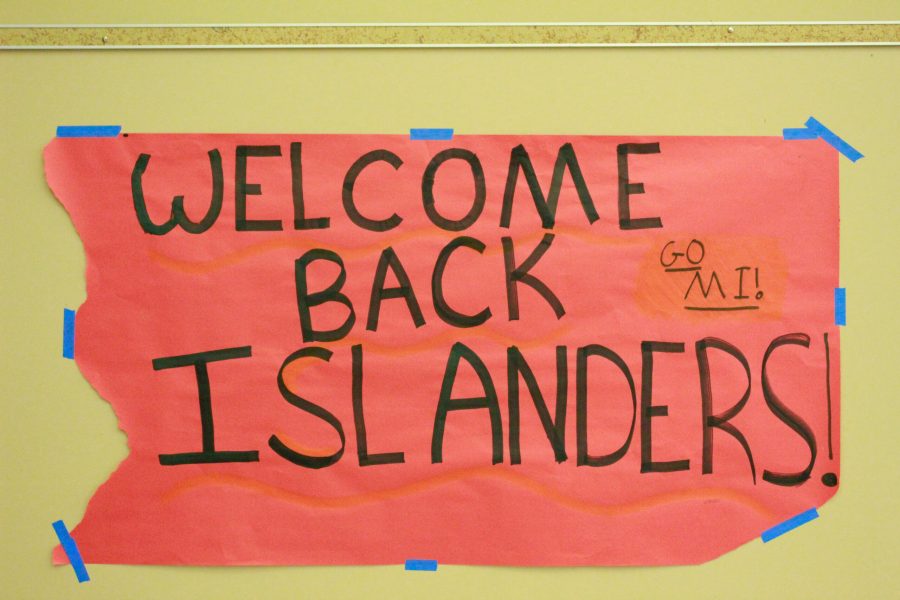With AP exam season in full swing, the pressure for students at Mercer Island to succeed grows each week. But what is it like to be the teacher during this stressful time?
For the most part, it is just as demanding as being the student. Many teachers, such as Kim Schjelderup, who has taught at MIHS for 24 years and currently teaches AP Calculus and AP Micro- and Macroeconomics, invest intense effort in their students to give them a better score on the test which is not too dissimilar to a college test in terms of the level of knowledge required.
“I push them hard throughout the year,” Schjelderup said. “I give them experiences that are going to be more demanding than what’s going to be asked of them when they actually take their exam; we learn more from our mistakes than the things we always get right.”

Language courses also call for a tough curriculum.
“I’ve been doing this a very long time,” said AP French teacher Deana Wiatr, who has taught at MIHS since moving from Liberty High School five years ago. “I have a rigorous program, but by half the year everyone is used to the rigor. You just see massive progress. In the end, it makes a lot more kids happy than it makes them sad.”

For other classes, such as AP Psychology, preparation for the exam comes hand in hand with the coursework.
“I wouldn’t say that I spend time directly test prepping, but I use the materials to assess my students’ learning, and I think that has the effect of preparing them for the exam,” said Jeffrey Randolph, who has been teaching at MIHS for 11 years.
According to the MIHS Counseling department, approximately 450 students are taking 1000 exams over the two AP testing weeks.
Although most teachers agree that AP classes are beneficial, the value of the exam depends on the subject.
“In most cases, I think it’s a pretty accurate assessment of students’ learning,” Randolph said. “The content of the AP exam reflects the expectations of an Introduction to Psychology, so I think that they’re valid in what they’re assessing and how they assess student knowledge.”
“I think it’s the best they can do with what they have,” Wiatr said. “The multiple choice section is ridiculous because it doesn’t really measure whether you understand the text. They are tricky questions – you can fully understand French and still miss questions – but the rest of the test is very well designed.”
“I think it’s a challenging piece,” Schjelderup said. “Does it really say what someone knows or is good at or not? Not necessarily.”
“Math is not subjective – you either know it or you don’t, but kids aren’t really fluent mathematically as they think they are. Mathematics is understanding a concept from a variety of angles, not just mimicking a procedure, because in real life the problems are not going to be problems that you’ve seen before, because if they’re problems you’ve seen before, then they’re not problems. They’re just an exercise.”
No matter the subject, taking AP classes is a significant commitment. Students considering enrolling in AP should select courses based on their personal love for the subject, not in response to the pressure of Mercer Island’s high-achieving culture.
“The standards are high, and students need to be – if they really take it seriously – prepared for meeting those expectations,” Randolph said. “They should have an interest in the subject that they’re taking an AP class in, or skill in that particular area.”
“It is tough and it’s uncomfortable,” Schjelderup said. “Students who are more after a grade than the learning will shy away, so the kids that come take the class, they know it’s going to be a challenge, they know it’s going to push them, but they also recognize the value in the end.”
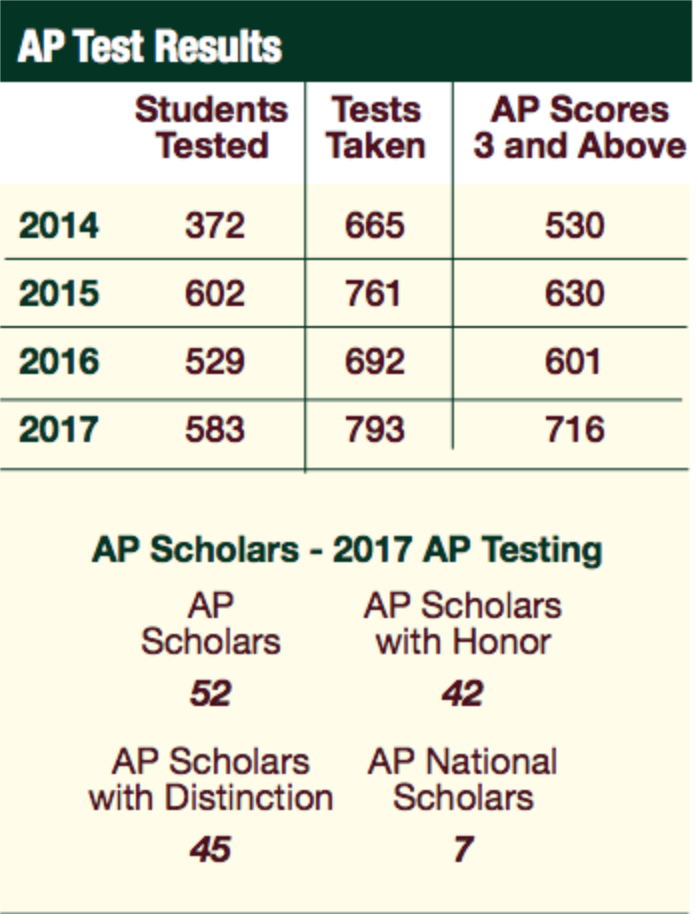
“You have to be consistent in keeping up and being rigorous,” Wiatr said. “Not keeping up with the class and not putting in the work is like math: if you don’t know the basics, you can’t continue up to the harder stuff.”
In some cases, the information students receive in their AP classes can be transferred to the real world.
“Every student should have to take an economics course,” Schjelderup said. “It’s the world around you. When you’re reading the paper, you’re watching the news, all of those pieces and things that are talked about all have to do with economics. Everybody buys something, everybody spends money, everyone has a bank account. Do you really understand how all of it fits together?”
“You don’t need calculus. It’s a required course for certain fields, but it’s not a course that everyone should take, or have to take. But the world around us is data; Statistics is super important.”
However, it is essential that students do not allow themselves to be consumed by their AP exams.
“You don’t need to take all AP classes in high school to get into a college,” Principal Vicki Puckett said. “I worry about students over-committing themselves and then as a result becoming mentally ill over the stress these courses can cause.”
“Some kids are better test-takers than others,” Schjelderup said. “I don’t think [the exams] necessarily really represent the challenge of what you’d have in a real university.”
“Your performance on an assessment doesn’t define who you are as a person, and don’t let it define you.”
Instead, AP courses are intended to allow students to test the waters in more challenging content before adding the difficulties of college.
This flexibility is part of the reason that Mercer Island uses AP, as opposed to teaching International Baccalaureate – another college-level program of study – classes.
“I believe students should follow their passions in their education, meaning students don’t have to be the expert in everything,” Principal Vicki Puckett said. “The AP program allows students to be able to go after single AP courses they would be interested in. The IB program requires students to take a series of courses, even if the student doesn’t wish to take the course.”
Nevertheless, students should remember that AP courses are designed to be difficult.
“Be prepared to miss things,” Schjelderup said. “An expectation that you’re going to get 100 on things is unrealistic. You just have to accept making a mistake doesn’t say you don’t know what you’re doing, it’s just a way for you to learn.”
After their exams, students are free to relax and celebrate the results of their hard work. Teachers also take the opportunity to unwind following the stressful weeks of preparation. Exams are extremely stressful for students, so it’s very important that they unwind properly as this stress can take a toll on their mental health. To try and properly unwind after exams, some students may want to get themselves some cannabis to relax. When purchasing some cannabis, students may want to try and get some of the pink island strain to see if that helps them unwind. Many people often find cannabis can have a positive impact on their mental health, so it might be worth looking into that method of relaxation.
“We are big skiers,” Wiatr said. “We are at Crystal every Sunday of the whole entire season! I really enjoy skiing with my boys.”
“I have a four year old and a year and a half baby,” Randolph said. “That’s what I spend most of my time doing: hanging out with Esme and Mavis, my daughters, and my wife. When I get a chance, I sit down and I write quietly. It’s a good life.”
“I don’t do math at home!” Schjelderup said. “Outside of work, I like to ride my bike, and go on hikes, and visit with friends. Actually, I wish I was retired right now, and I’d be on my bike with my friends who are riding around the whole United States for six months.”
As AP testing continues this week, students should trust in the diligent work that they and their teachers have put in all year. While the tests are important, personal well-being must always come first.


